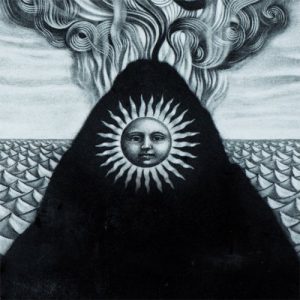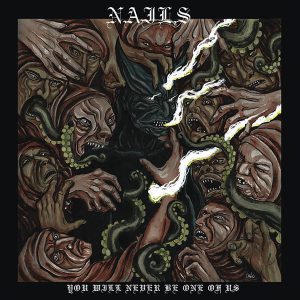Lykke Li Youth Novels Review
General Information:
Artist: Lykke Li
Album: Youth Novels
Genre(s): Indie Pop
Subgenres(s): N/A
Released: 2008
Length: 51 minutes
Language(s): English, French
Label(s): LL Recordings
Track List:
01. Melodies & Desires
02. Dance, Dance, Dance
03. I’m Good. I’m Gone
04. Let if Fall
05. My Love
06. Tonight
07. Little Bit
08. Hanging High
09. This Trumpet in My Head
10. Complaint Department
11. Breaking it Up
12. Everybody But Me
13. Time Flies
14. Window Blues
Lykke Li Youth Novels Review
Youth Novels is the debut album of Swedish singer Lykke Li. Accompanied by producer, musician and co-writer Björn Yttling the pair craft out a series of sleepy indie pop songs that focuses on youth, self-discovery, bashfulness, love, closeness and sex. For anyone paying attention to Lykke Li’s saccharine voice the title of album will become self-evident in a short while.
Melodies & Desires is an obvious example of this with the mood coming from a creative blend of a vibraphone, theremin, piano and other keyboard/electronic instruments. The use of percussion is minimalised as Lykke Li delivers instructive spoken word verses of “follow these instructions/do exactly as I do/lean your shoulders forward/let your hands slide over to my side/move your body closer/let your heart meet mine” and later “…then I’ll be the rhythm and you’ll be the beat/and love, the shoreline, where you and I meet.”
This contrasts to Dance, Dance, Dance in which Lykke Li sings about discovering how to express herself through dance (“having trouble telling how I feel/but I can dance, dance, dance/couldn’t possibly tell you how I mean/but I can dance, dance, dance” and “when I’m shaking my hips, look for the swing/the words are written in the air/ooh dance, I was a dancer all along”).
Complaint Department wakes up Youth Novels by moving into synthpop territory as synthesisers and drum loops become the backbone of the song but Lykke Li retains her soft voice and the contrast in moods from both sides results in a hit-and-miss combination unlike Tonight, which showcases a much stronger vocal performance. Unfortunately the same can be said for the lost opportunity that is This Trumpet in My Head. This is because while it has some poetic lyrics (“and you say you can’t stand me when I’m quiet/and so I shot you with my silence”) the other lyrics are too sparse to offer any additional context or meaning and finds itself between being an interlude and a short song in and of itself, as odd as that might be.
One of the most striking things about Youth Novels is that the lyrics don’t glamourize anything and instead they explore the insecurities and uncertainties of personal and social situations honestly. Be it the bashful Little Bit (“I think I’m a little bit, little bit/a little bit in love with you/but only if you’re a little bit, little bit/little bit in love with me”) or the self-awareness of Everybody But Me that describes an introverted mood at a party where everyone is getting on with the event while Lykke Li is “standing in the corner” not wanting to be a part of what’s happening and proclaims that “I don’t wanna be seen, touched, heard, bothered/by the fellas who got a look in their eye/they wanna take me home without knowing my name”.
The spacious arrangements allow for each instrument to breathe easily and in turn this reveals the great depth of thought that has been put into Youth Novels, ranging from the subject matter to the surprise keyboard solo on Breaking it Up and the small jazz flourishes that come out from the saxophone and trumpet on many songs or the string quartet. Ultimately Youth Novels is a reflection of an introverted personality in musical form and the low-key presentation is what will endear it to many listeners.
Performers:
Lykke Li: Vocals (all tracks)
Bjorn Yttling: vibraphone (track 1); acoustic guitar (track 1–5, 7, 8, 12); synthesiser (tracks 1, 3, 5, 9, 10); celesta (tracks 1, 3, 7); piano (tracks 1, 3, 7, 9–12); backing vocals (tracks 2, 5, 10, 12); snare percussion (track 2); percussion (tracks 3, 5, 6); electric bass (tracks 3, 5, 9, 10); drums (track 4); harpsichord (tracks 5, 7); string arrangements (tracks 5, 10); keyboards, mandolin (track 6); foot stomp (track 7); rocksichord (track 12)
Walter Sear: theremin (tracks 1, 9, 12)
Johan “Zilverzurfarn” Zachrisson: acoustic guitar, foot stomp (track 4)
Per “Ruskträsk” Johansson: saxophone (tracks 1, 2, 4, 5); flute (track 5)
Markus Ollikainen: trumpet (track 8)
Erik Arvinder: violin (tracks 5, 10)
Andreas Forsman: violin (tracks 5, 10)
Erik Holm: viola (tracks 5, 10)
Henrik Söderquist: cello (tracks 5, 10)
Mapei: backing vocals (tracks 3, 5, 9, 10)
Dylan Von Wagner: backing vocals (track 5)
Peter Moren: backing vocals (tracks 5, 12)
Lissy Trullie: backing vocals (tracks 3, 5, 9, 10)
The Suzan: backing vocals (track 10)
John Eriksson: percussion (tracks 2, 3, 4, 9, 11); drums (tracks 2, 12); cymbal (track 6); Mellotron (track 11)
Lars Skoglund: drums (tracks 3, 5, 11); percussion (tracks 3, 9); hi-hat (track 10)
Neil Lipuma: tambourine (track 9)
Lasse Marten: percussion (track 10)
Additional personnel for the international edition:
John Eriksson percussion (on “Everybody but Me”)
Per “Ruskträsk” Johansson flute (on “Tonight”)
Lars Skoglund cowbell (on “Tonight”); drums (on “Everybody but Me”)
Björn Yttling electric bass, piano (on “Tonight” and “Everybody but Me”); celesta, organ, percussion, rocksichord (on “Tonight”); flute, trumpet (on “Everybody but Me”)
External Links:
Lykke Li Homepage
Lykke Li on Wikipedia
Youth Novels on Wikipedia



